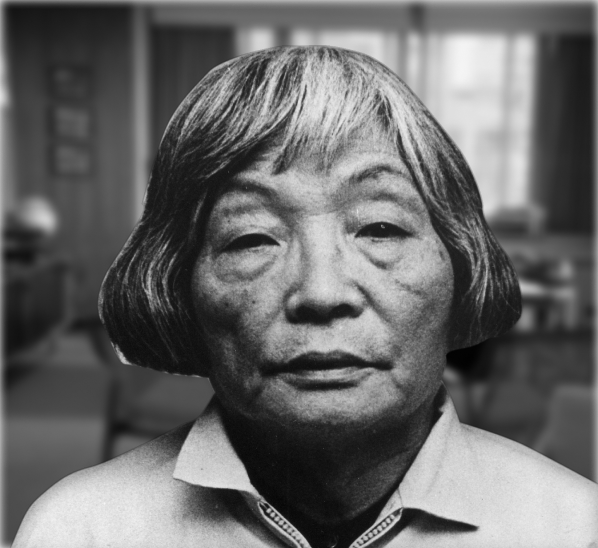- In 1948, HANAMORI, with Miss Shizuko Ohasi as a partner, founded and became editor-in-chief of the magazine, Kurashi-no-Techno, a quarterly magazine that tested and evaluated consumer goods.
- In a course of two decades, some 200 products have been tested in the laboratory of the magazine; all such items are purchased on the market to insure they are representative.
- With a circulation of 800,000, the magazine has become a “bible” for Japanese housewives and others searching for quality. In the process, manufacturers frequently have been impelled to improve their wares.
- The RMAF Board of Trustees recognizes his cogent advocacy of the interests, rights and well-being of the Japanese consumer, especially the hard-pressed housewife.
Rapid industrialization and commercial expansion usually are achieved at great expense to the ordinary citizen. His labor pays for much of the cost of capital accumulation, without a comparable increase in his earnings. Expenditures on housing, roads, schools, hospitals, parks and other social amenities to ease his life tend to be deferred. Massive urbanization compounds the problems of his daily existence.
Japan’s post-World War II economic miracle of industrialization and global trading growth is idealized by much of the less developed world. Increasingly affluent Japanese, however, are alarmed that this has been accomplished at the sacrifice of many of the traditional satisfactions and refinements of their society. Often torn from his rural roots, the Japanese worker is trapped in an environment of unfamiliar and disturbing change. As living has become commercialized, he is at the mercy of impersonal and remote manufacturing and marketing enterprises over which he has negligible control.
YASUJI HANAMORI conceived the format for a magazine that would serve such workers and their families “because during and after the War, their lives were so poor and difficult.” He explained his creed: “I believe that if people can be shown how to do things and to develop human relationships of kindness and affection, living can be more precious and they will resist anybody or any activity that threatens to take it away from them.”
In 1948, with Miss Shizuko Ohashi as a partner, HANAMORI founded and became editor-in-chief of the magazine, Kurashi-no-Techno. To avoid the risk of compromising its integrity he declined from the start to accept advertising. The first 10,000 copies of this consumer goods testing-and-evaluation quarterly were carried in knapsacks by the staff to bookstores for sale. Over the past 23 years, some 200 products have been tested in the laboratory of the magazine; all such items are purchased on the market to insure they are representative. Today, with a circulation of 800,000, the magazine has become a “bible” for Japanese housewives and others searching for quality. In the process, manufacturers frequently have been impelled to improve their wares. Emphasis is upon products in common use, whether domestic or foreign. Indicative of this approach is the refusal of the magazine to carry recipes unless they can be followed successfully by amateur cooks on the staff shopping in markets and using kitchen appliances available to an average family.
HANAMORI’s involvement, shared by his associates, goes beyond the material. As revealed in his numerous essays and other published works, he cares for the totality of human experience. Bom in Kobe City in 1911, he majored in aesthetics at the Faculty of Letters in Tokyo University. First drafted into the army in 1937 and sent to Manchuria, he was again drafted during the Pacific War. A sensitive and concerned individual, wartime experience helped shape him into a writer whose continuing identification with the “forgotten people” of Japan has made him their spokesman and guardian.
In electing YASUJI HANAMORI, editor-in-chief of the magazine, Kurashi-no-Techno, to receive the 1972 Ramon Magsaysay Award for Journalism, Literature and Creative Communication Arts, the Board of Trustees recognizes his cogent advocacy of the interests, rights and well-being of the Japanese consumer, especially the hard-pressed housewife.
It has been an immeasurable honor and pleasure for me to be given the Ramon Magsaysay Award in recognition of my humble work. Your Award has brought double satisfaction as I have felt deep reverence and fellowship towards the late President Magsaysay’s achievements and personal integrity.
I am grateful to receive this Award as an Asian, as I believe many people in various parts of Asia who are working toward the same goal as mine must get encouragement from this recognition.
As for myself, to fight to defend the daily living of a great many in the grassroots was not easy and it is rewardless work. Frankly, it has been a pleasant surprise that my work has been considered for today’s honor by your Board, as this is the very first instance the real significance and contribution of my work has been recognized.
Your encouragement and recognition have given me tremendous impetus and now with renewed determination and confidence I am hoping to pursue my work along with those in various parts of Asia with whom I share the same concern and aspiration.
It is the greatest regret of my life, therefore, that I cannot attend the presentation to receive your honored Award in person, because of my poor health. In a way, with the Award I am experiencing the greatest joy and the deepest sorrow in my life at the same time. And I would like to extend my deepest apologies to the Honorable Chairman and other Members of the Board and all the people who are attending the Presentation Ceremonies for my absence.
Before closing my brief address I would like to offer my boundless admiration and profound respect to your country; in the invaluable works of the Magsaysay Foundation and its most highly esteemed Awards we see the exemplification of the ideals of your people.

